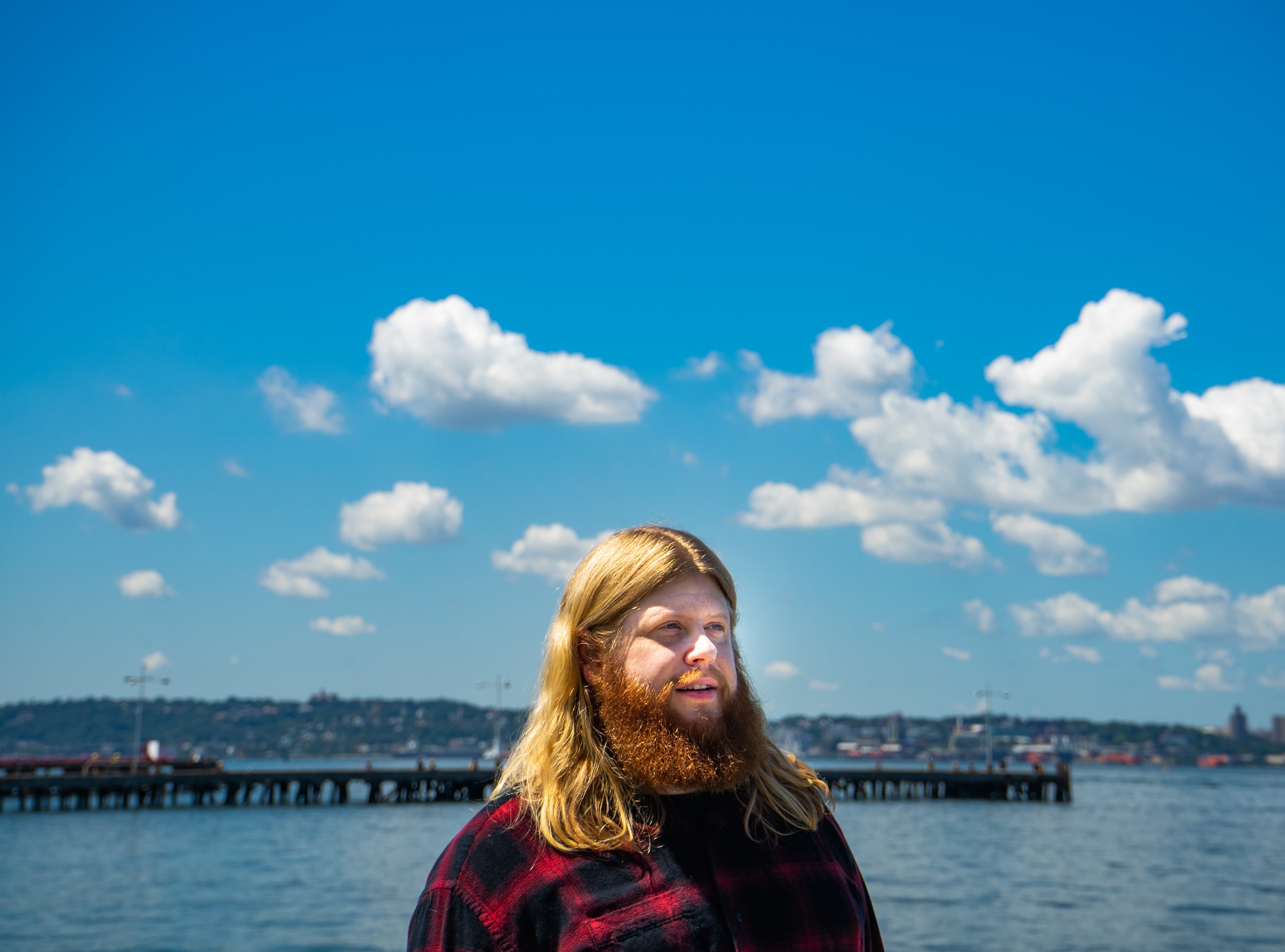Some Things About Me. Some Things About My Work.
I grew up in small towns in the southern United States, my father working for New York Times owned newspapers. We lived in North Central Florida for what for me would be fourth through twelfth grades. So that was home: retirees, humidity, churches. My mother was a high school English teacher. She died in a car accident when I was twelve years-old. My family and I still find the broken glass, from time to time - underneath, skin “healed” overtop.
When I was sixteen, my friends convinced me to join an acting class at school. I performed a monologue in which I played a man standing in a breadline whose son had frozen to death in his arms. Through that monologue, I remember gaining access to grief and to discomfort, which I’d theretofore denied myself. They were true, and they were not to be ignored. I knew I was better at writing than acting - more patient than quick-footed. So, I started writing plays.
I went to college. I went to grad school. I made a great many new friends. In high school, we’d met Shakespeare. Now, there was Shepard, Churchill, Pinter. Aeschylus, Sophocles, Euripides, Seneca. And, finally: Bond, Arden, Barker, Kane. I lost religion to The Norton Anthology of Theory and Criticism (not entirely false), and found it in King Lear, and Blasted, and The Bacchae. Is there a religious experience more pure than Fefu and Her Friends? If you find it, let me know.
I joke about losing religion, but the loss was only painful. I was raised Southern Baptist, the grandchild of missionaries. I believed myself immortal. I believed my mother was walking streets of gold. I believed it long enough that its absence still feels like an injustice. Uncertainty and unknowing remain encounters with the abject. Death, an impossibility. So, I try to write about that.
Keats gave us the term Negative Capability, which one possesses if “capable of being in uncertainties, mysteries, doubts, without any irritable reaching after fact and reason.” This is not to say one should deny the “fact” that Medea killed her children (that’s not a “reach”). Rather, one should not reach for conclusions about why it is she killed them. The truth of such an action resides in its contradictions, as does the truth of our humanness itself.
My task as a playwright is to frame these uncertainties in a way that allows an audience to encounter and reside within the tensions born of the mysteries and doubts we all share. If I’ve succeeded, you’ll leave my play unsettled, humbled, and curious. If I’ve failed, you’ll leave self-righteous and assured. The former is a challenge - for both the writer to accomplish and the audience to accept - so the latter can be tempting. But one shouldn’t leave a play as one would leave a sermon, or a rally for a favorite politician. Plays make no promises - radically, they do not. Instead they ask: How do we live without savior or assurances? Where is truth amidst uncertainty? What is justice between humans, when each human, to quote Whitman, contains multitudes?
A mentor once told me writing good plays will always cost you. If there’s not a cost, it’s not a good play. But the cost is not something borne solely by the writer. The audience must pay too. Why must they? For one, it’s nice to pay sometimes. But also: why else would we gather if not to pay a price? Is this not, in the end, the center of it all? What is theatre if not storytelling? What is storytelling if not ritual? What is ritual without a sacrifice? A slaughter burned and sent up to the unknown, until we smell the same smells as the gods who are not there. We’ll never see their faces, but we’ll watch a play as if beside them: our hearts together, almost synching. Is there anything closer to a collective gasp with the divine than Lear crying “nothing, nothing”…? If you find it, let me know.
— October 2021
